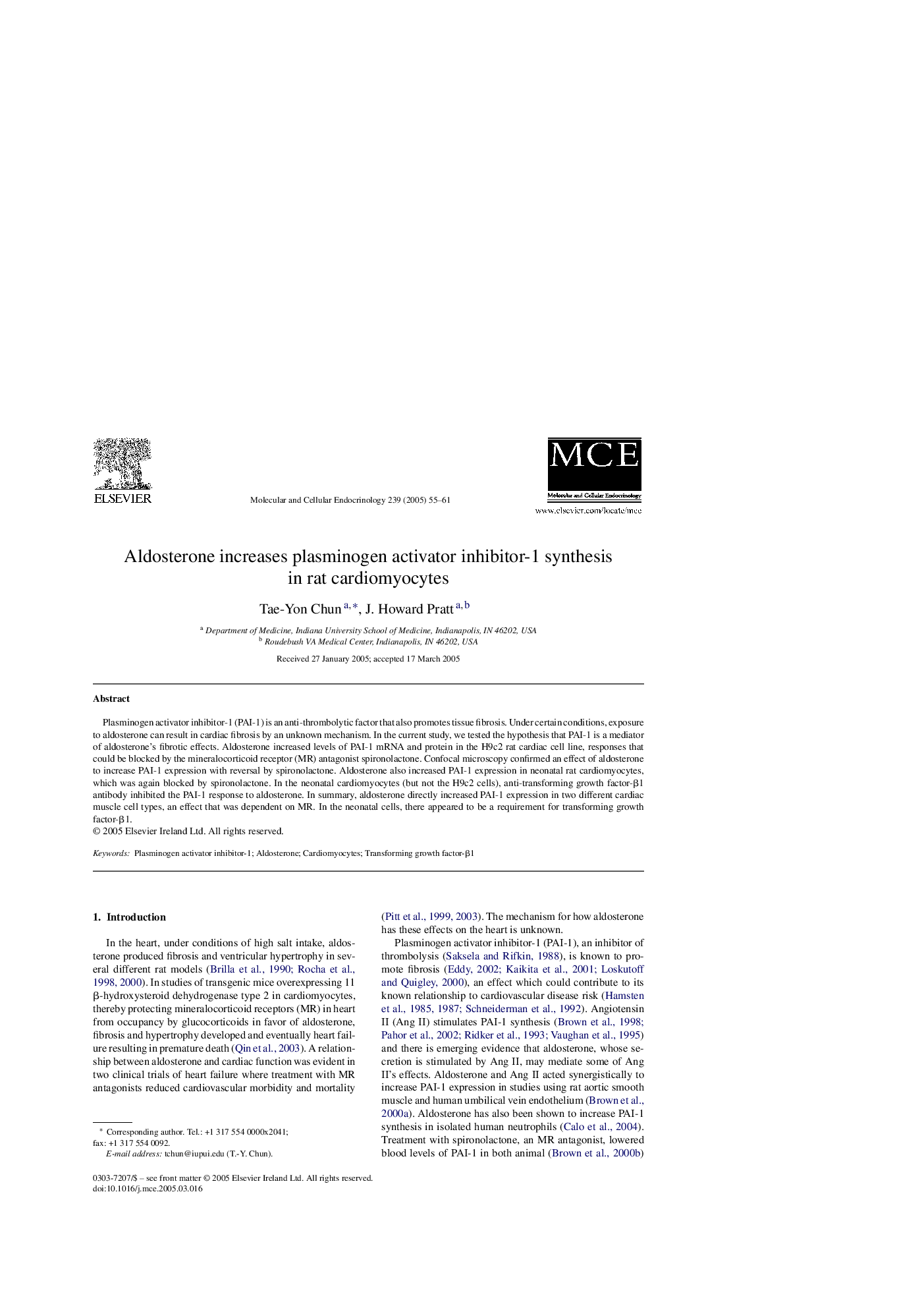| Article ID | Journal | Published Year | Pages | File Type |
|---|---|---|---|---|
| 9914944 | Molecular and Cellular Endocrinology | 2005 | 7 Pages |
Abstract
Plasminogen activator inhibitor-1 (PAI-1) is an anti-thrombolytic factor that also promotes tissue fibrosis. Under certain conditions, exposure to aldosterone can result in cardiac fibrosis by an unknown mechanism. In the current study, we tested the hypothesis that PAI-1 is a mediator of aldosterone's fibrotic effects. Aldosterone increased levels of PAI-1 mRNA and protein in the H9c2 rat cardiac cell line, responses that could be blocked by the mineralocorticoid receptor (MR) antagonist spironolactone. Confocal microscopy confirmed an effect of aldosterone to increase PAI-1 expression with reversal by spironolactone. Aldosterone also increased PAI-1 expression in neonatal rat cardiomyocytes, which was again blocked by spironolactone. In the neonatal cardiomyocytes (but not the H9c2 cells), anti-transforming growth factor-β1 antibody inhibited the PAI-1 response to aldosterone. In summary, aldosterone directly increased PAI-1 expression in two different cardiac muscle cell types, an effect that was dependent on MR. In the neonatal cells, there appeared to be a requirement for transforming growth factor-β1.
Related Topics
Life Sciences
Biochemistry, Genetics and Molecular Biology
Cell Biology
Authors
Tae-Yon Chun, J. Howard Pratt,
